- Make It Yourself Lavender Heart-Shaped Bath Bombs!
- 20 Things You Never Knew About “Down There”
- 12 Best Foods For Those Suffering From Arthritis Pain
- 12 Personal Hygiene Mistakes Almost Everyone Makes (Mom Never Told You About #4!)
- 15 Medicinal Plants And Herbs From The Cherokee People
- 12 Mind-Blowing Benefits Of Drinking Coconut Water During Pregnancy
- 12 Outstanding Winter Foods That Won’t Fatten You Up Like A Christmas Turkey
12 Foods to Protect Your Brain from Aging and Dementia

Photo credit: bigstock.com
If someone told you that you could protect your brain from age related diseases, such as Alzheimer’s and dementia, simply by eating more delicious wholesome foods and spices, wouldn’t you do it? Who wouldn’t!
Although exercise and genetics play a big part in your brain health, diet is also important. You will not find a magic pill or potion that will cure or prevent dementia, but scientists do know that certain nutrients can improve memory and cognitive ability.
Boost your overall brain power and decrease your chances of developing age related disease by adding more of the following 12 foods and spices to your diet.
1. Dark Chocolate
The flavonoids in cocoa are super beneficial to the brain. One study looked at the impact of adding dark chocolate to the diet for a period of three months. In this 2014 study, researchers looked primarily at a part of the hippocampal formation in the brain that often declines with aging called the dentate gyrus, or DG. After consuming dark chocolate for the three month study period, researchers found that all subjects experienced enhanced DG function.
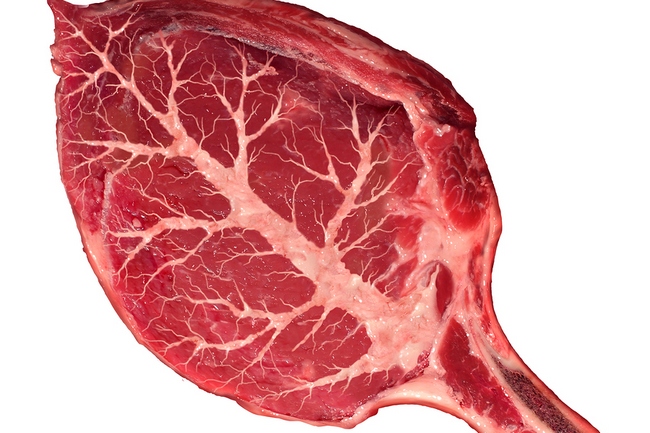
Photo credit: bigstock.com
2. Red Meat
Grass fed beef is an excellent way to get plenty of vitamin B12, which is key for healthy brain function. Studies show that persons who are deficient in B12 are more likely to score lower on cognitive tests and have smaller total brain volume.
Studies suggest that the lack of this important vitamin can lead to brain shrinkage.

Photo credit: bigstock.com
3. Fatty Fish
Fatty fish that are rich in omega-3 fatty acids, such as tuna, mackerel, and wild salmon, will not only keep your heart healthy, but they also give your brain a real boost of power. A study done with mice in 2014 showed that when these mice were given omega-3 polyunsaturated fatty acid supplements, they not only had improved cognitive function as they aged, but they also had aversive response retention, improved object recognition memory and better spatial and localized memory as well.
If you aren’t a fan of fish, or if you are concerned about eating mercury contaminated fish, consider taking fish oil or krill oil supplements.
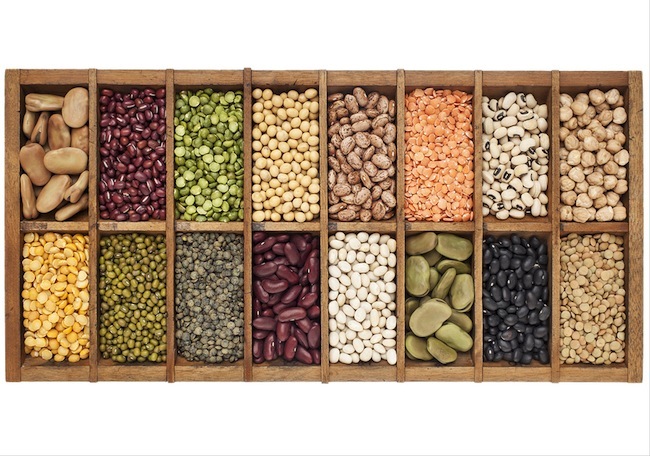
Photo credit: bigstock.com
4. Chickpeas
Sometimes called garbanzo beans, these little yellowish beans are one of the best sources of magnesium around (with the exception of kelp). Magnesium citrate can improve the brain cell receptors to speed along the transmission of messages.
It also relaxes the blood vessels, which allow improved blood flow to the brain.
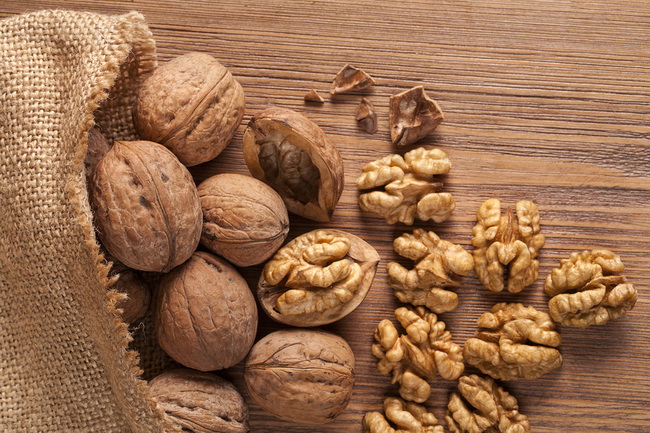
Photo credit: bigstock.com
5. Nuts
Like fish, many nuts are rich in omega-3 fatty acids, so adding more nuts to your diet will give your brain some pretty impressive amounts of this vital fatty acid. Walnuts especially have been shown to fight against memory loss.
Doing a large-scale analysis, researchers found that persons who added vitamin E, folate, melatonin, and antioxidant rich walnuts to their diets had improved scores on a series of cognitive tests.
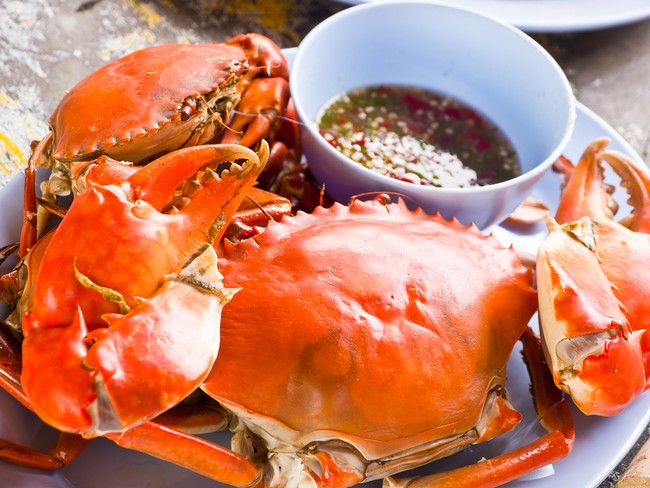
Photo credit: bigstock.com
6. Crab
Just one serving of crab has more than one day’s requirement of phenylalanine, an important amino acid that helps to make a neurotransmitter called dopamine, along with adrenaline and thyroid hormones.
SEE ALSO: Dementia and Vitamin D Deficiency: Is There a Link?
It’s believed that phenylalanine can help fight against Parkinson’s disease. Crab is also another excellent source of vitamin B12.
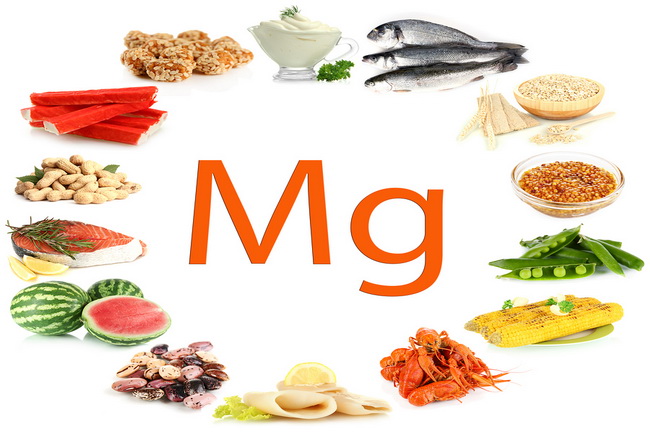
Photo credit: bigstock.com
7. Magnesium
Many scientists believe that a deficiency in magnesium might play a large role in cognitive decline, aging of the brain, and dementia. Magnesium supplements are difficult for the body to absorb and use.
You can make your own magnesium oils and lotions for better absorption, soak regularly in Epsom salt baths, as well as eat more magnesium rich foods such as almonds, avocados, bananas, figs, pumpkin seeds, Swiss chard, and spinach.
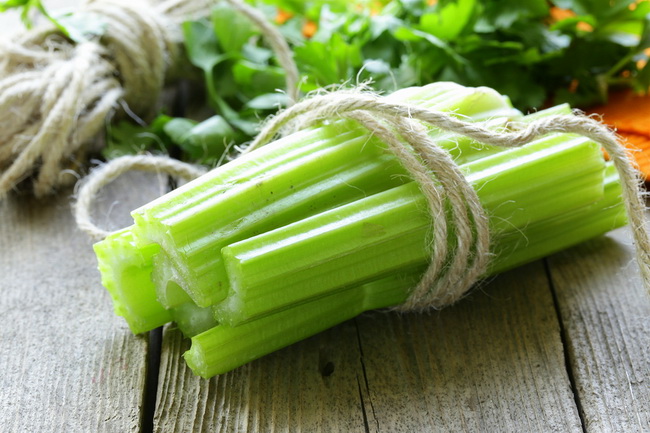
Photo credit: bigstock.com
8. Celery
Luteolin is a plant compound that can calm inflammation in the brain and celery is a rich source of this compound. Inflammation in the brain is one of the primary causes of neurodegeneration.
In studies done with mice, luteolin has been linked to lower rates of age-related memory loss. Carrots, peppers, and celery are all excellent sources of luteolin.

Photo credit: bigstock.com
9. Blueberries
Although all berries are high in anthocyanins, blueberries are perhaps the best source of this important compound. Anthocyanins have been shown in studies to increase the neuron signaling in the memory parts of the brain. One study done in 2010 showed that these delicious little blue pearls were shown to have both anti-inflammatory and antioxidant effects.
Researchers found during the course of this study that subjects who drank wild blueberry juice regularly on a daily basis showed improvements in paired associate learning and tasks related to word recall; they also had lower glucose levels and lower symptoms of depression. Find out 8 super benefits of blueberries and things you might never knew.
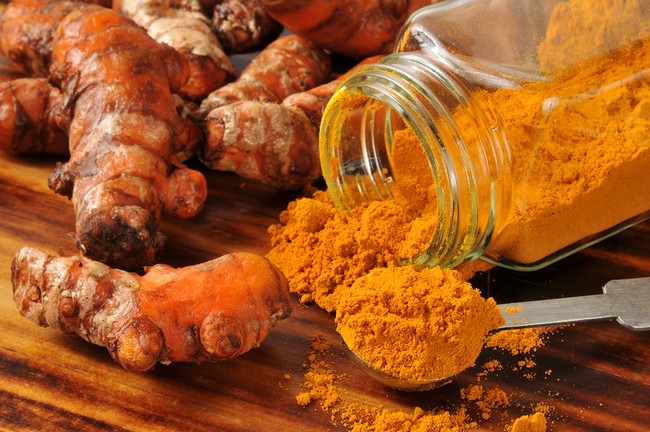
Photo credit: bigstock.com
10. Turmeric
The anti-inflammatory, antioxidant compound in turmeric is called curcumin. Curcumin is one of the rare substances that can cross the blood-brain barrier, which researchers say offers great promise when it comes to using this spice as a neuroprotective agent. Research has shown that turmeric can help to suppress the accumulation of the destructive beta amyloids, as well as break up existing plaque in the brains of those suffering from Alzheimer’s.
Turmeric has even been shown in studies to improve the memory and stimulate the production of neurogenesis, which is the creation of new brain cells. Don’t rely on curry powder to get your turmeric, as many curry powders contain little or no curcumin.

Photo credit: bigstock.com
11. Cruciferous Vegetables
In addition to being good for your stomach and colon, the National Institute on Aging says that eating plenty of vegetables, especially cruciferous vegetables such as broccoli, cauliflower, and spinach, can fight off many chronic diseases such as heart disease and diabetes, as well as cognitive decline.
The Mediterranean diet especially, which focuses on vegetables, beans, fruit, olive oil, and fish, has been shown in numerous studies to be super beneficial for cognitive health when compared to the typical American diet of high sugar, high salt, and high carb consumption.
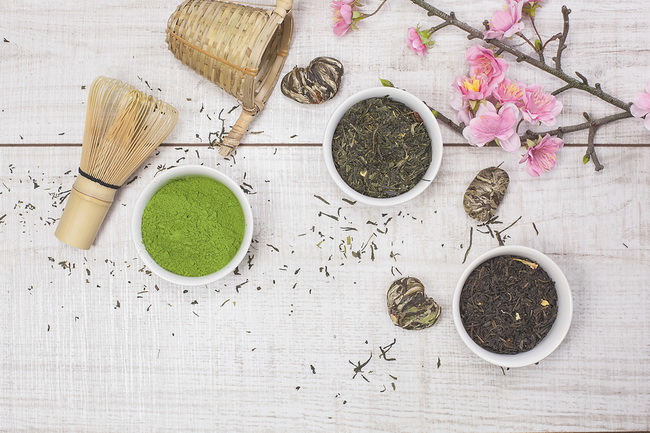
Photo credit: bigstock.com
12. Green Tea
Green tea has many health benefits, including protecting your brain from age related decline. The University of Basel conducted a study which showed that green tea extract can improve the working memory and thought process. This study showed that after receiving a green tea extract the subjects scored much higher in working memory tasks. An MRI of these subjects showed that there was a boost in connectivity between the frontal cortex and the parietal portion of the brain. This means that green tea can increase the short term synaptic plasticity of the brain.
Extra Tip:
Healthy fats are also beneficial when it comes to better brain function. Eat more organic butter from raw milk, olives, virgin olive oil, coconut oil, and nuts like pecans and macadamia, along with free range eggs and avocados.
References:
































